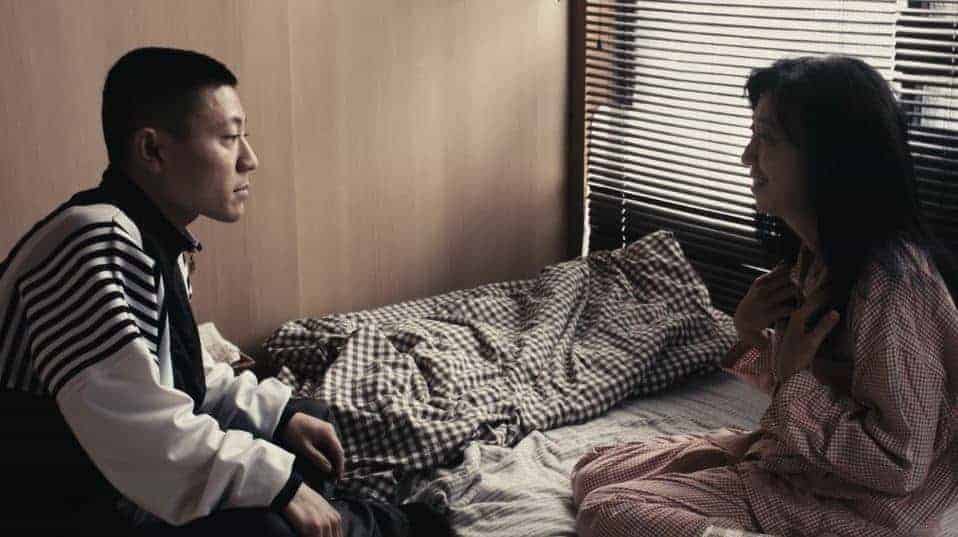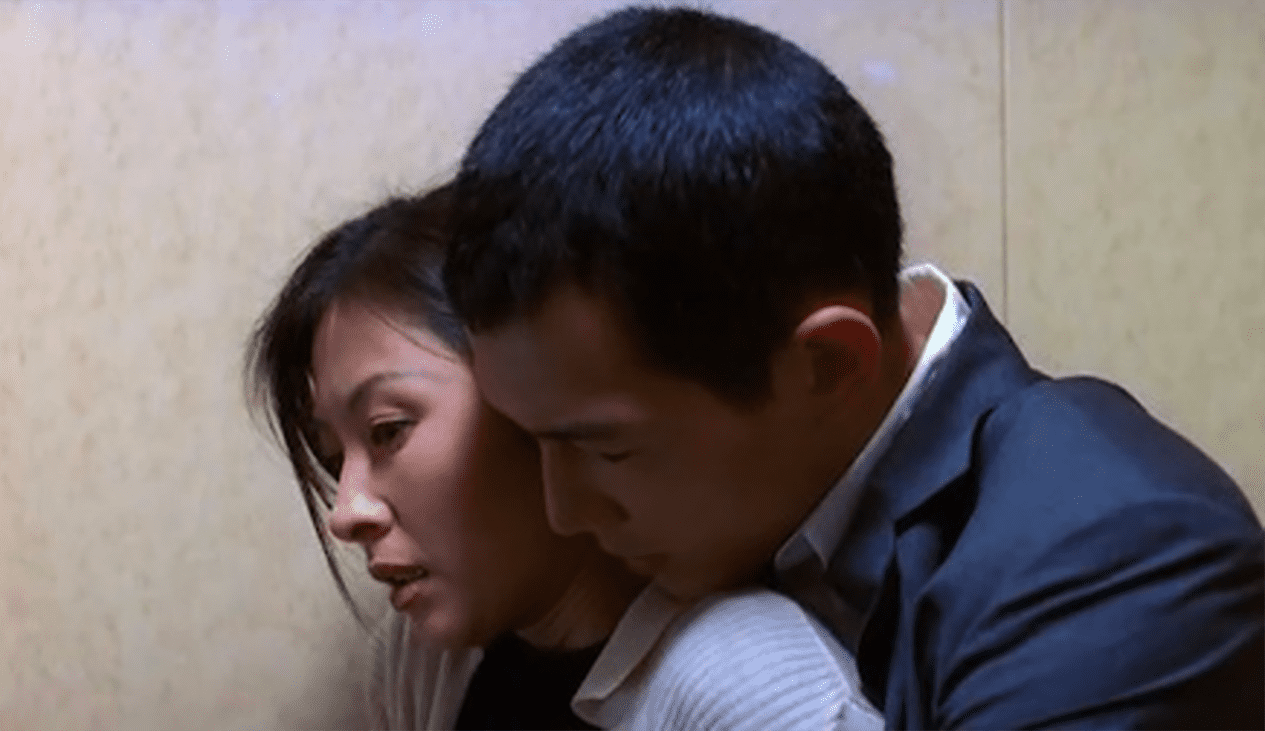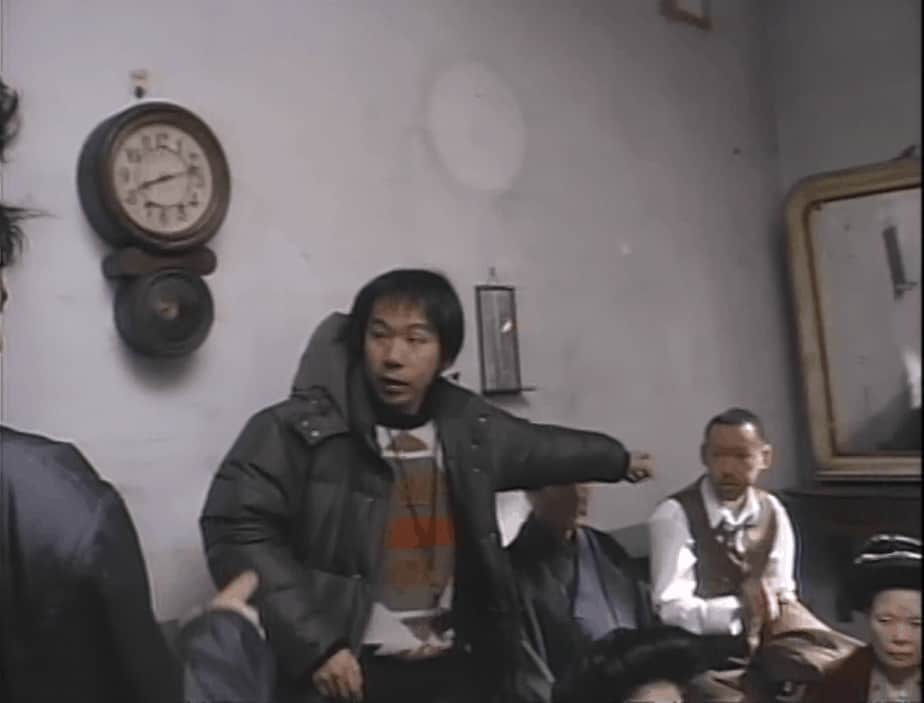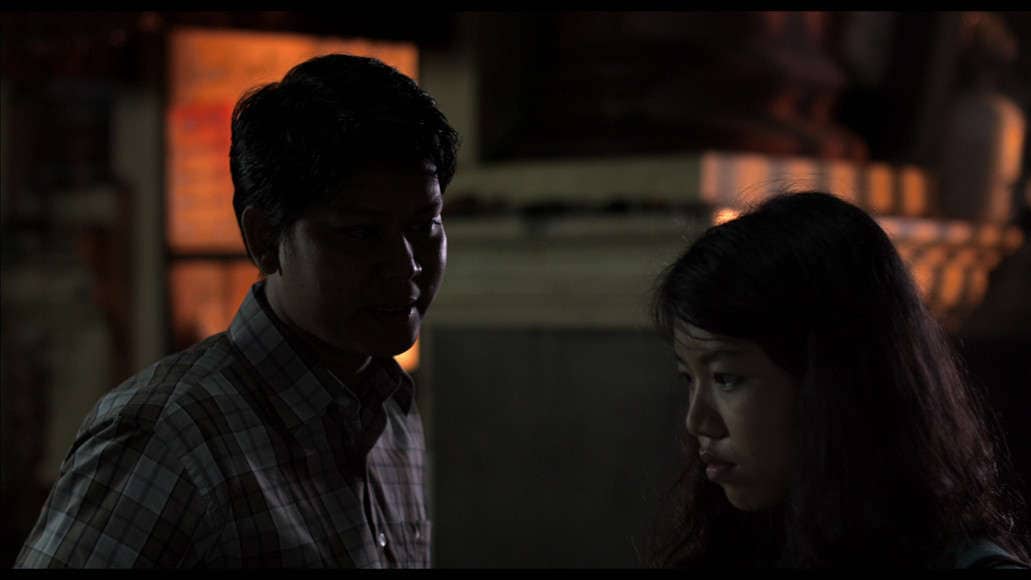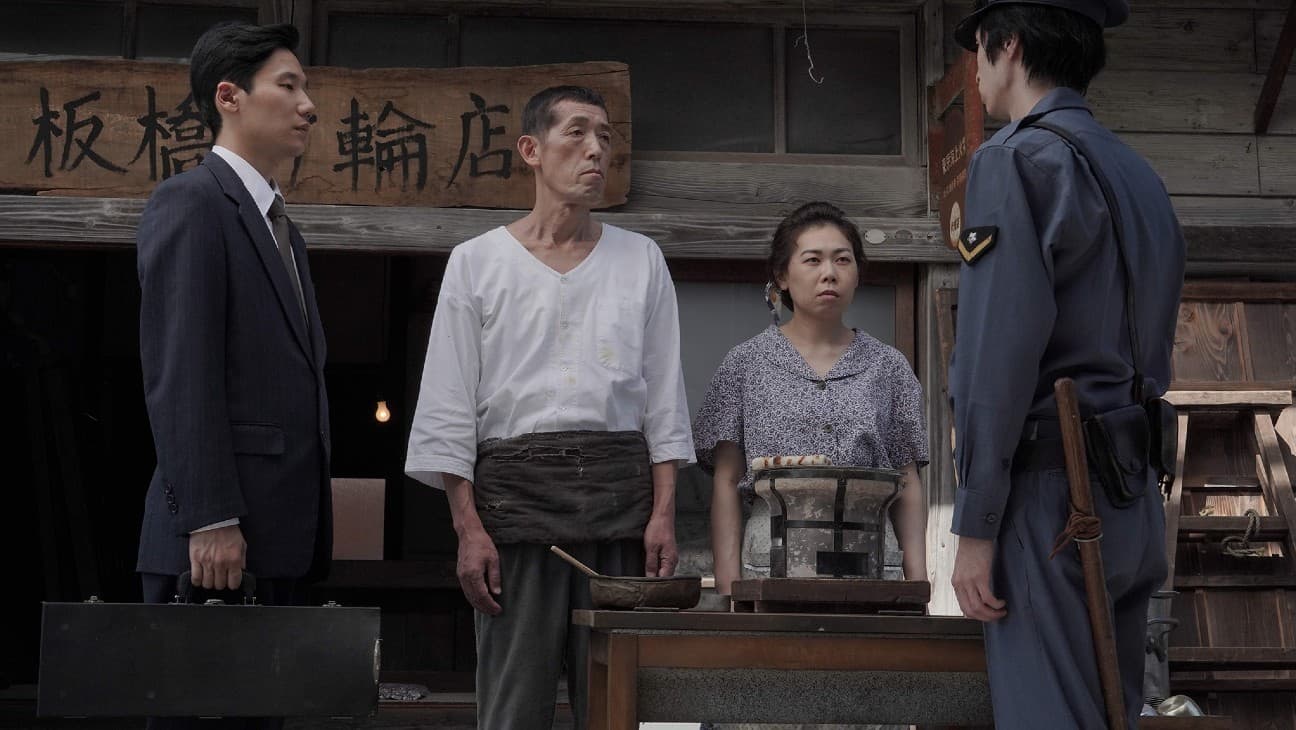Written and directed by Ryutaro Ninomiya, “Sweating the Small Stuff” is a highly personal film about loss. There is a dedication at the end of the film that suggests much of what is happening is at least partly biographical, along with the fact that the central character, played by Ninomiya, shares his name with the director.
“Sweating the Small Stuff” screened at International Film Festival Rotterdam

Ryutaro works at a quiet garage, where scrapped cars are piled high and there seem to be no customers. His days are spent speaking with co-workers, eating his boxed lunch and taking cigarette breaks. After a call from a friend to say that his mother is sick, he goes to meet them. It is clear that Ryutaro shares a close relationship with the woman, Ryuko, and is saddened by her illness. He continues his rather dreary life, either sitting alone in his apartment, drinking beer and reading, or at work. Occasionally, he will go to a bar with friends but seems to get little satisfaction from this. Even spending time with his girlfriend, he is either listless or easily aggravated by her. Among the interminable drudgery, there are moments of emotional release when he lets his feelings out and we are able to understand, though never completely, a little of what he is experiencing.
Written and directed by Ninomiya, only his second feature film, the script is enjoyable and he has a good sense of realistic dialogue, particularly in the nonsensical conversations of Ryutaro's co-workers. While focusing on realism, the film also manages to introduce several subtle themes that continue throughout, such as kindness, people's worth, and the fragility of life. The ponderous style will be familiar from similar character study films, where the focus is on a single protagonist and largely concerned with everyday activities rather than action. Ninomiya shows a talent for direction, with the handheld camera work allowing us inside the world of the characters.
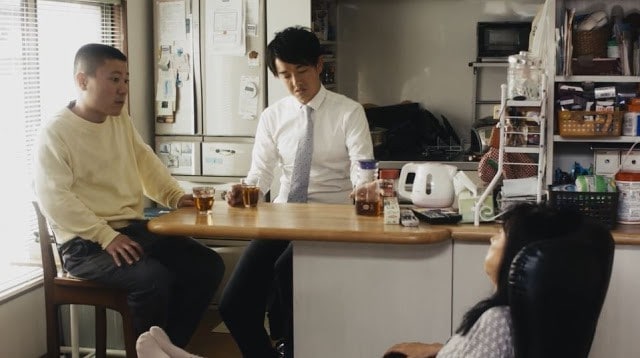
Another interesting decision is to keep the camera rolling when Ryutaro leaves certain scenes. We hear background conversation and it plays into the themes of death, departure, and life going on without him that seem to be on the character's mind. The film is set in the garage, apartments, bars and on the streets, and there is often plenty of background detail to take in, making for an interesting watch. While the scenes may be quiet, much can be surmised about the characters and the situation from their surroundings, as seen in Ryutaro's flat with its empty alcohol bottles and stacks of books. It is a film that requires the audience to pay attention to the details of character dialogue and action. The actors all do a great job in conveying a range of emotions that seem to doubly emphasize Ryutaro's apparent inability to express himself.
It is clear that the film is a very personal project for the director. It is often hard to grasp exactly what Ryutaro is feeling throughout the film, but it becomes clear later on that there is more going on beneath the surface than you might at first suspect. On the rare occasions that he lets his guard down, we see that there are emotions that he is keeping bottled up. It is a film about illness and death that shies away from approaching the subject head-on and in doing so gains a certain power. Instead, we witness Ryutaro's reaction to it. Death and illness is something he doesn't want to confront, finds hard to deal with, and which sheds a stark light on the importance or otherwise of his own life.


